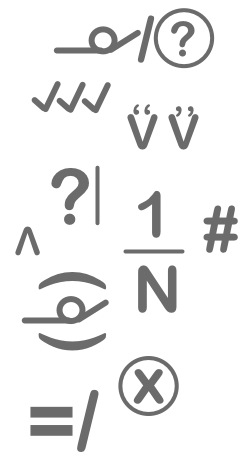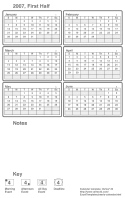House and Senate committees are currently reviewing two bills that call for federal agencies to use simpler, clearer language in public documents. Both H.R. 946, the “Plain Language Act of 2009” and S. 574, the “Plain Writing Act of 2009” have been proposed in order . . .
As reported by the Center for Plain Language, this is the second go-around for these bills, which were introduced by Rep. Bruce Braley (D-IA) in the House and Sen. Daniel Akaka (D-HI) in the Senate. The previous attempt to pass similar legislation in 2008 led to its passage in the House, but the Senate version did not make it out of committee for a vote. If passed, the legislation would require federal agencies to ensure that their public documents in print and electronic form are written using language that can be understood by their intended audiences — that is, the general public.
So what is “plain language,” and what does it mean for you?
Continue reading “new momentum for plain language in government”

 On an automobile assembly line, you wouldn’t wait until after you’ve installed all the interior paneling and trim to put in the side windows. When it comes to editing your reports, white papers, instruction manuals, and other important documents, are you doing the equivalent?
On an automobile assembly line, you wouldn’t wait until after you’ve installed all the interior paneling and trim to put in the side windows. When it comes to editing your reports, white papers, instruction manuals, and other important documents, are you doing the equivalent? New hPDA calendar templates for the first half of 2009 are now available on the Active Voice
New hPDA calendar templates for the first half of 2009 are now available on the Active Voice  Recently, in preparation for an interview for a magazine article, I visited the website of the interviewee’s organization to get some background information. In particular, I wanted to make sure I understood the organization’s mission; it’s a useful reference point for framing interview questions.
Recently, in preparation for an interview for a magazine article, I visited the website of the interviewee’s organization to get some background information. In particular, I wanted to make sure I understood the organization’s mission; it’s a useful reference point for framing interview questions. Summer’s over — and that means campus commutes, after-school activities, and last-minute runs to the office supply store. If you’re about to start college, become a taxi driver for your kids, or take a cross-country business trip, my newest Hipster PDA template, the gas mileage tracker, was made for you.
Summer’s over — and that means campus commutes, after-school activities, and last-minute runs to the office supply store. If you’re about to start college, become a taxi driver for your kids, or take a cross-country business trip, my newest Hipster PDA template, the gas mileage tracker, was made for you. Regular readers
Regular readers